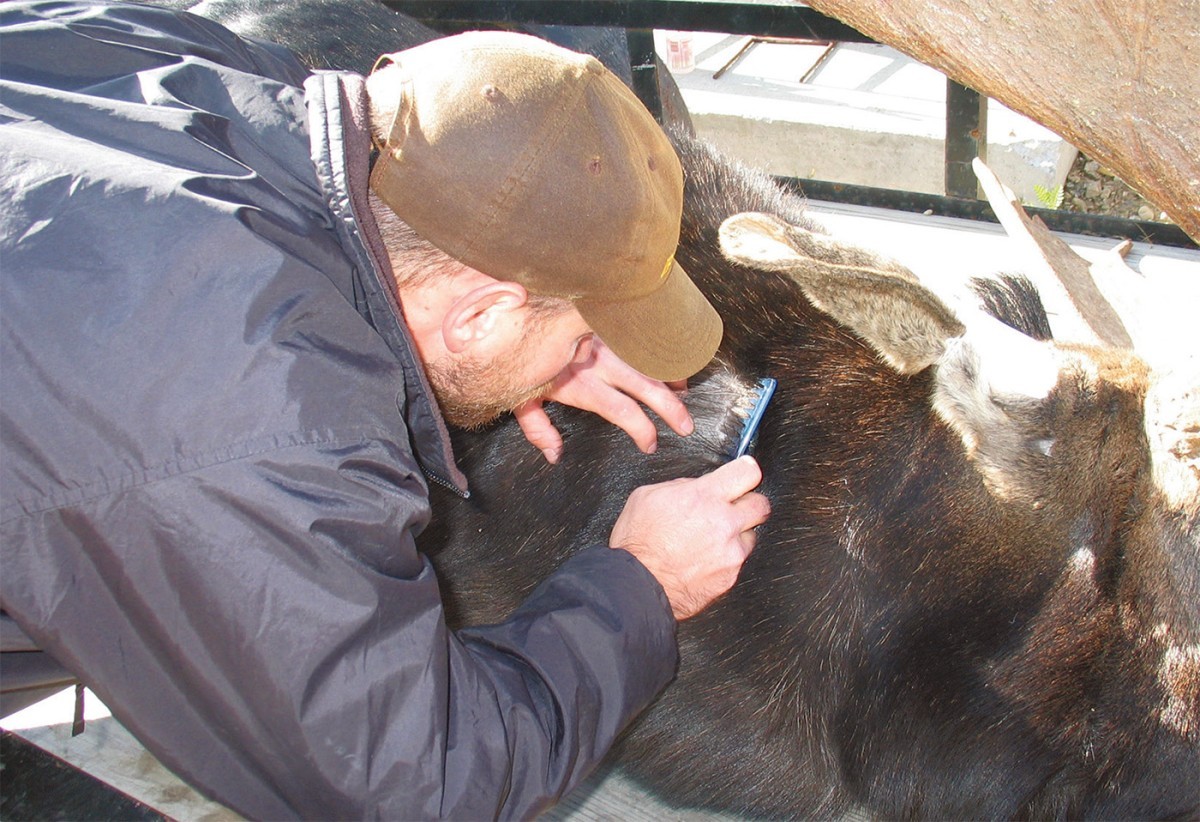
The later start to winter in many recent years has provided winter ticks in northern New England with an extended period of time to find a host animal to feed on, and that appears to be the main factor in the significant decline in moose birth rates and moose calf survival in the region. That’s the conclusion drawn by Peter Pekins, a natural resources professor at the University of New Hampshire, who has been collaborating with state wildlife officials in Maine, Vermont, and New Hampshire to study moose survival and reproduction in the region.
While capturing 179 moose calves and attaching radio collars to them, the researchers counted an average of 47,371 ticks on each animal, with a high count of more than 96,000. Since each adult female tick can suck up to three milliliters of blood from its host, Pekins said the high number of ticks could drain the blood of a moose calf in two to three weeks. As a result, in four out of the five years of the study, at least half of all moose calves that researchers were following died; in New Hampshire and western Maine, the mortality rate was 70 percent.
“That’s unprecedented. It’s never been reported in any time in history anywhere,” Pekins said. “They’re dying from acute anemia driven by blood loss. They’re skin and bones in the best habitat imaginable; they’re dying with food in their mouths.”
Adult moose seldom die from tick-related issues, but the researchers found that the concurrent decline in birth rates was likely caused by ticks.
“Bulls and cows can deal with the blood loss, but it does impact their productivity,” said Pekins. “We see almost no twinning any more, and our yearling females only rarely get pregnant. The rate of calving in successive years is down to 40 percent, when it should be 80. It seems that there is a physiological penalty for having a calf. It takes them an extra year to recover.”
Part of the problem is the high density of moose in the region, which ensures that most ticks will find a host. It’s what Pekins calls “a classic host-parasite relationship. Even though our moose population is declining, there are still enough moose out there to drive this impact.”
While periodic tick infestations have had a temporary effect on moose populations in the past, the frequency of the infestations has increased dramatically, which Pekins said reflects the influence of climate change. “The larval ticks look for a host from mid-September until winter sets in with 20-degree temperatures or snow cover,” he explained. “That used to be in mid-November, but now it’s getting later and later and later, which allows the ticks more time to get on a moose.”
The implications for moose management are not clear. Since high moose density contributes to the problem, one strategy is to reduce moose density. “But do we really want to kill more to make it better?” Pekins asked. “We can’t control the weather, and with winter starting later and later, there’s nothing we can do about it. Eventually it will find its own balance, but that balance will be a lower density of moose.”


Discussion *